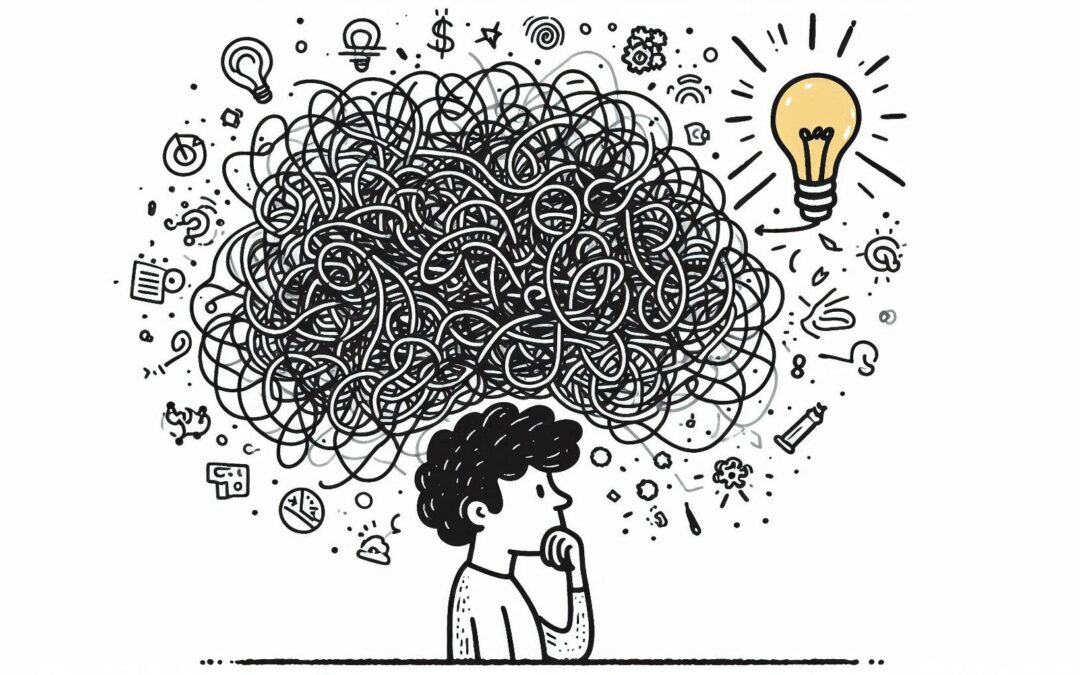12 Irrational Ideas That Cause and Sustain Neurosis
Albert Ellis, Ph.D
Albert Ellis, a pioneer in psychology, developed the concept of the 12 Irrational Ideas That Cause and Sustain Neurosis to explain common thought patterns that can lead to emotional distress and mental health struggles. These irrational ideas are essentially beliefs that are unrealistic, rigid, or self-defeating, and they often create unnecessary stress and anxiety.
For example, one of these ideas is the belief that “I must be loved and approved by everyone I know.” While it sounds harmless, this belief can cause constant worry and frustration, as it’s impossible to meet everyone’s expectations. Ellis argued that these irrational beliefs trap people in a cycle of negative emotions, such as anxiety, depression, or anger, because they set unrealistic expectations for themselves and others.
By identifying and challenging these irrational ideas, people can adopt more rational, balanced ways of thinking that lead to better emotional health. Rational Emotive Behavior Therapy (REBT), Ellis’s therapeutic approach, is designed to help people recognize and replace these irrational thoughts, freeing them from the cycle of neurosis.
These 12 ideas are not just psychological jargon; they reflect everyday pressures and expectations we place on ourselves, making them accessible and relevant to anyone looking to improve their mental well-being. Let’s explore what these 12 ideas are …

Irrational ideas that can lead to overthinking or catastrophic thinking
- The idea that it is a dire necessity for adults to be loved by significant others for almost everything they do — instead of their concentrating on their own self-respect, on winning approval for practical purposes, and on loving rather than on being loved.
- The idea that certain acts are awful or wicked, and that people who perform such acts should be severely damned — instead of the idea that certain acts are self-defeating or antisocial, and that people who perform such acts are behaving stupidly, ignorantly, or neurotically, and would be better helped to change. People’s poor behaviors do not make them rotten individuals.
- The idea that it is horrible when things are not the way we like them to be — instead of the idea that it is too bad, that we would better try to change or control bad conditions so that they become more satisfactory, and, if that is not possible, we had better temporarily accept and gracefully lump their existence.
- The idea that human misery is invariably externally caused and is forced on us by outside people and events — instead of the idea that neurosis is largely caused by the view that we take of unfortunate conditions.
- The idea that if something is or may be dangerous or fearsome we should be terribly upset and endlessly obsess about it — instead of the idea that one would better frankly face it and render it non-dangerous and, when that is not possible, accept the inevitable.
- The idea that it is easier to avoid than to face life difficulties and self-responsibilities — instead of the idea that the so-called easy way is usually much harder in the long run.
- The idea that we absolutely need something other or stronger or greater than ourself on which to rely — instead of the idea that it is better to take the risks of thinking and acting less dependently.
- The idea that we should be thoroughly competent, intelligent, and achieving in all possible respects — instead of the idea that we would better do rather than always need to do well and accept ourself as a quite imperfect creature, who has general human limitations and specific fallibilities.
- The idea that because something once strongly affected our life, it should indefinitely affect it — instead of the idea that we can learn from our past experiences but not be overly-attached to or prejudiced by them.
- The idea that we must have certain and perfect control over things — instead of the idea that the world is full of probability and chance and that we can still enjoy life despite this.
- The idea that human happiness can be achieved by inertia and inaction — instead of the idea that we tend to be happiest when we are vitally absorbed in creative pursuits, or when we are devoting ourselves to people or projects outside ourselves.
- The idea that we have virtually no control over our emotions and that we cannot help feeling disturbed about things — instead of the idea that we have real control over our destructive emotions if we choose to work at changing the musturbatory hypotheses which we often employ to create them.
(From The Essence of Rational Emotive Behavior Therapy, by Albert Ellis, Ph.D. Revised, May 1994.)
Find out more about irrational ideas and a fuller explanation of REBT at this link.
Dr Tom Barber is a #1 bestselling author, integrative and existential psychotherapist and coach, supervisor, researcher, speaker, and co-founder of Self Help School. His work has spanned nearing 30 years, in which he has focussed on helping people all over the world to improve their knowledge and understanding of their psychological worlds. Tom regularly delivers courses and lectures in the UK, USA, Canada, Mexico, and across Europe. In addition, he maintains a private therapy and coaching consultancy from his base in Essex, and online.

